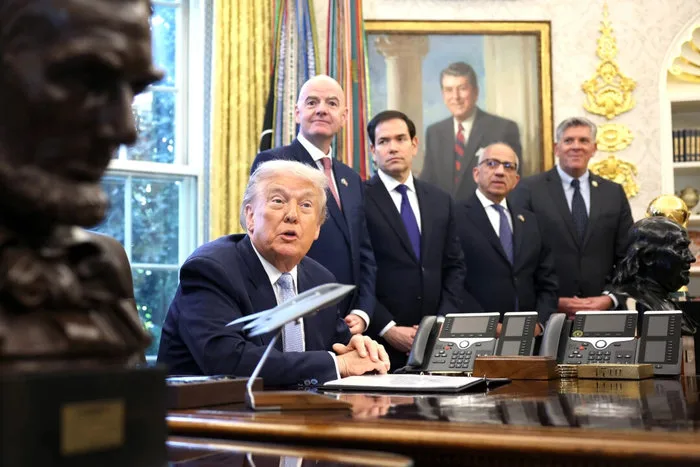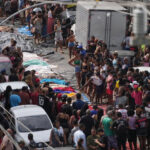By Aldgra Fredly
President Donald Trump said Nov. 17 that he would be open to holding talks with Venezuelan leader Nicolás Maduro but refused to rule out sending U.S. troops into Venezuela amid tensions over U.S. anti-narcotics operations in the Caribbean.
When asked at a press conference whether he would rule out the possibility of sending U.S. ground troops into Venezuela, Trump replied: “No, I don’t rule out that. I don’t rule out anything.”
“We just have to take care of Venezuela. They dumped hundreds of thousands of people into our country from prisons,” he told reporters in the Oval Office.
When pressed on whether there was anything Maduro could say to gain his support, Trump did not give a direct response but said he thinks the Venezuelan leader has caused “tremendous damage” to the United States, citing the illegal migration of Venezuelans to the United States and illegal drug trafficking.
“It’s hard to say that, the question is a little bit tricky,” Trump said. “He has not been good to the United States, so we’ll see what happens. At a certain period of time, I’d be talking to him.”
Maduro has repeatedly denied allegations of illegal drug trafficking.
The Trump administration has ramped up U.S. military presence in the Caribbean to deter drug smuggling and carried out strikes on vessels that U.S. officials say were carrying narcotics to the United States. The most recent strike on Nov. 15—the 21st operation since September—killed three alleged drug traffickers.
Trump said on Nov. 16 that his administration might hold talks with Maduro but offered no details.
“We may be having some discussions with Maduro, and we’ll see how that turns out,” he told reporters in Florida, adding that the Venezuelan regime had requested the talks.
The U.S. government recently announced it would be designating the Venezuelan Cartel de los Soles as a foreign terrorist organization, which Secretary of State Marco Rubio alleged is led by Maduro and other high-ranking Venezuelan officials. They have denied the accusations.
Trump said the designation would allow Washington to target Maduro’s assets and infrastructure in Venezuela but noted there were no immediate plans to do so.
“It allows us to do that but we haven’t said we’re going to do that,” the president said.
In late October, the U.S. military deployed the USS Gerald R. Ford aircraft carrier to the Southern Command area of responsibility—which encompasses Central America, South America, and the Caribbean—in support of counter-narcotics operations in the region.
Venezuela had condemned the U.S. military’s deployment of the guided missile destroyer USS Gravely to Trinidad and Tobago for a joint military exercise last month and in response, suspended its energy cooperation with the twin-island nation.





